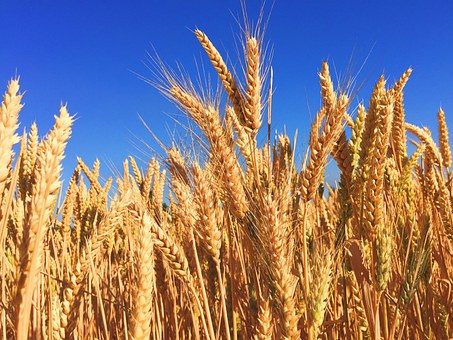How did gluten become such a pariah?
With its presence blamed for common gut problems, gluten-free products have swept the marketplace. However, for better or worse, eliminating components or categories of foods from diets will impact health.
Our task is to learn how microbes figure in the equation. But first, listen to a simplified story of gluten and its travails.
Gluten is a protein with a unique amino acid structure. Those genetically predisposed with celiac disease as well as many others not diagnosed with this autoimmune disorder cannot process wheat (gliadin—part of the gluten), or rye (secalin) or barley (hordein), leading to small bowel damage. The damage to intestinal tissue results from immune responses activated by gluten.
Celiac disease
The usual accepted therapy for celiac disease (CD) is strict avoidance of all gluten in the diet, a difficult if not impossible task.
But being predisposed, as mentioned before, does not mean the disease is inevitable. Gut infections and antibiotics alter the gut microbes and may trigger onset of CD. For illustration, children with active CD have dysbiosis with increased Gram-negative bacteria, Bacteroides, and Escherichia coli that were normalized under a gluten-free diet.
Non-celiac gluten-sensitivity
Non-celiac gluten-sensitivity (NCGS) is a different clinical entity. It is NOT celiac disease and it is NOT a wheat allergy although the symptoms may be similar. Expunging gluten is the main workaround at this time. Nevertheless, other factors may also share the blame. For example modern cereals of wheat, rye and barley are more inflammatory than ancient wheats such as einkorn and spelt.
Gluten-free diet and microbes
Importantly, specific foods will favor the selective enrichment of microorganisms capable of using these nutrients leading to the maintenance of a diverse and balanced community. In any case, eliminating gluten, as with any diet change, alters the microbial stasis. Even short-term changes in diet were shown to significantly alter the gut microbiota structure. Studies demonstrated that a gluten-free diet also caused a reduction in beneficial bacteria.
Conflicting results have resulted from fecal analysis that reveal that consuming a GFD results in a decrease of beneficial and increase of unhealthy gut bacteria in healthy individuals, thus supporting a positive effect of gluten.
Probiotics and gluten intolerance
Supplementation of celiac patients with probiotics in order to support the recovery and maintenance of healthy gut microbiota is being explored. An interesting article in Clinical Microbiology Reviews discusses the microbiota in celiac disease and the use of probiotics as a novel therapy.
Specific probiotics may digest or alter gluten polypeptides. Microbiota profiles differ in children with the disease and those without. Those with celiac disease have fewer lactobacilli and bifidobacteria. Some bacterial species belonging to the genera lactobacillus and bifidobacterium exert protective properties on epithelial cells from damage caused by gliadin.
Research from Finland demonstrated that Bifidobacterium lactis counteracted some of the harmful effects of gliadin on permeability as well as protected the tight junctions of cells where gliadin does harm. Probiotics such as Bifidobacterium lactis may be helpful in mucosal recovery or for patients who are not responding to a gluten-free diet or for protection when gluten is ingested unknowingly. Even if the damage is done,probiotics may be a crucial dressing: mucosal healing is speeded along according to some research.
Takeaway
Eliminating gluten in daily diets may be necessary, as in celiac disease. Or it may be a choice predicated on probable cause. Either way, beneficial microbes may suffer. Replenishing with supplements may be advised.
On the flip side, probiotic therapy may bolster immune and gut health, lessening the impact of gluten and reducing need for such a restrictive diet. One delicious alternative could be sourdough bread; organisms in the fermented dough degrade gluten.

